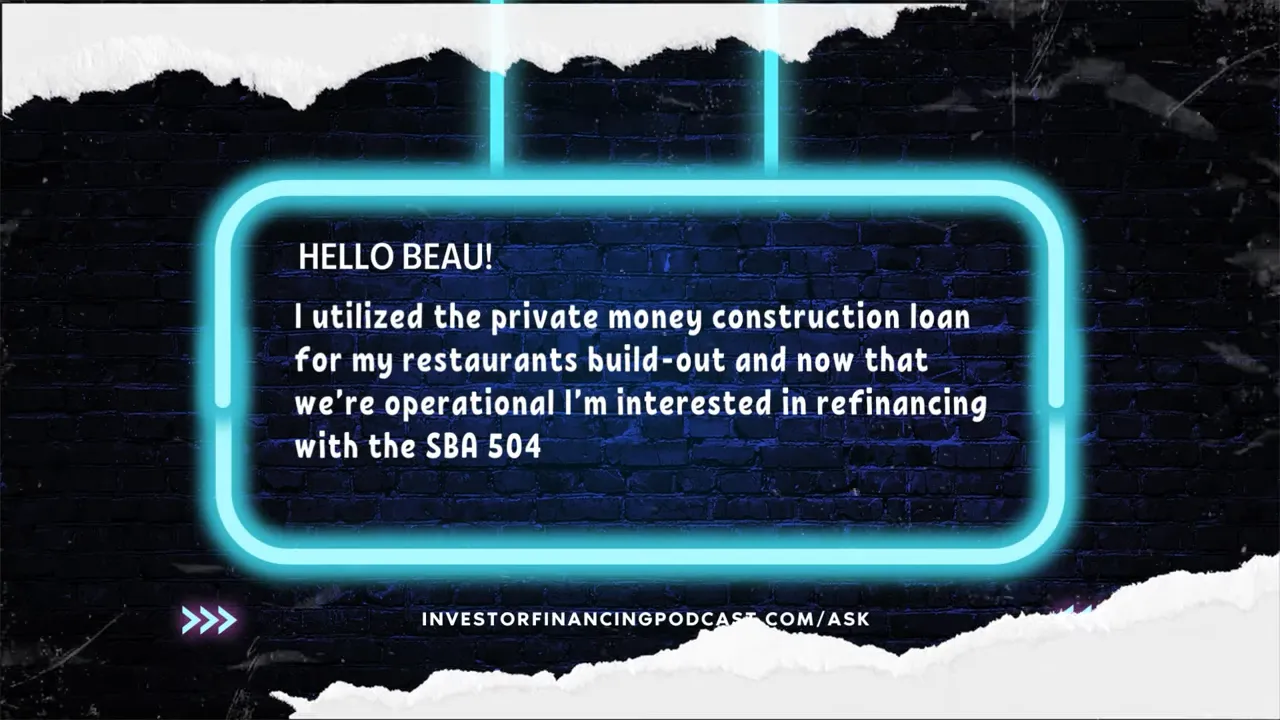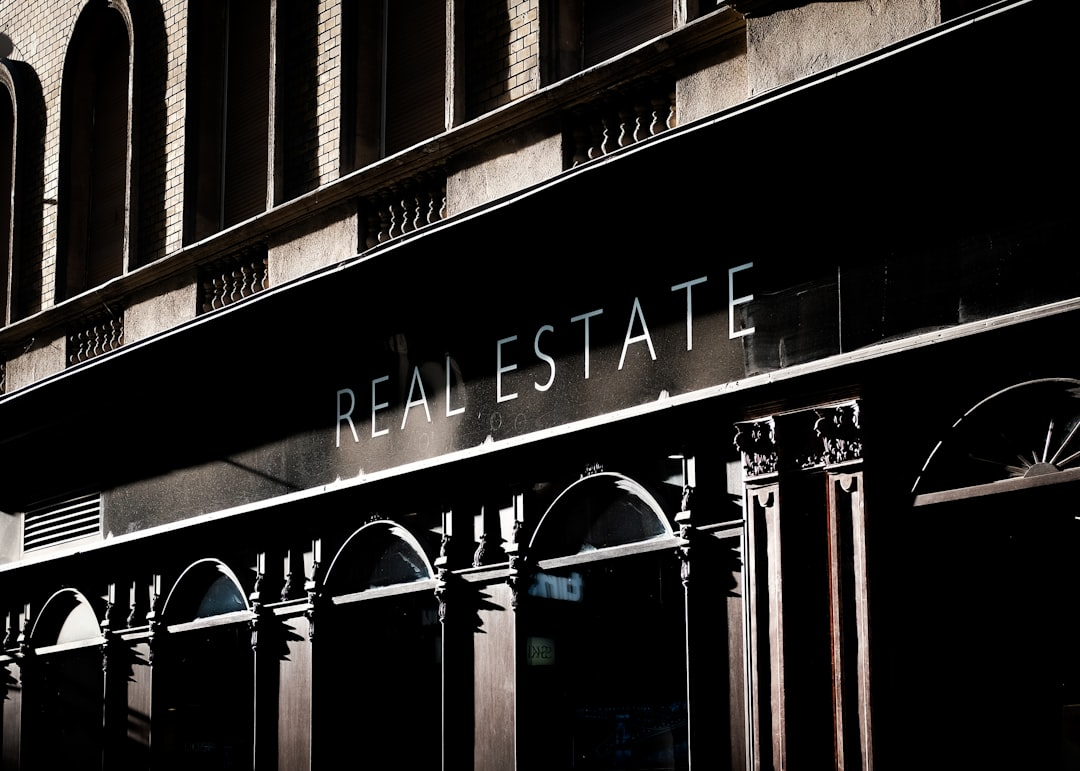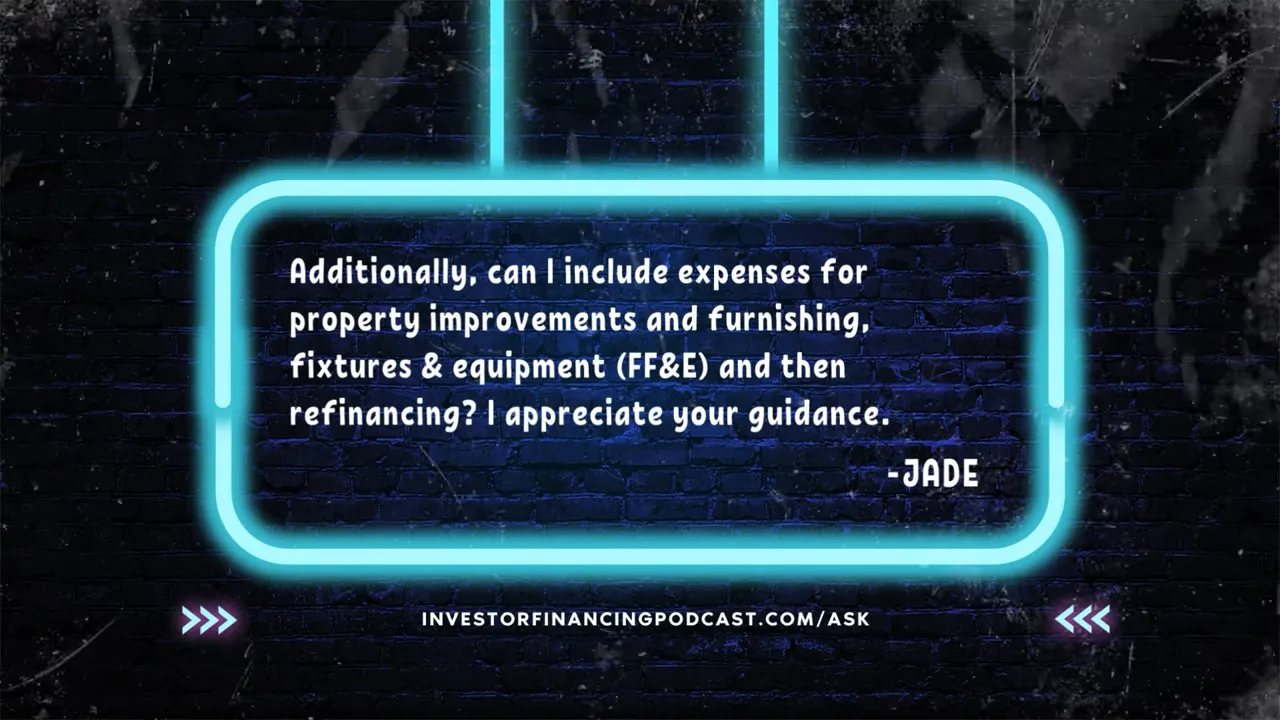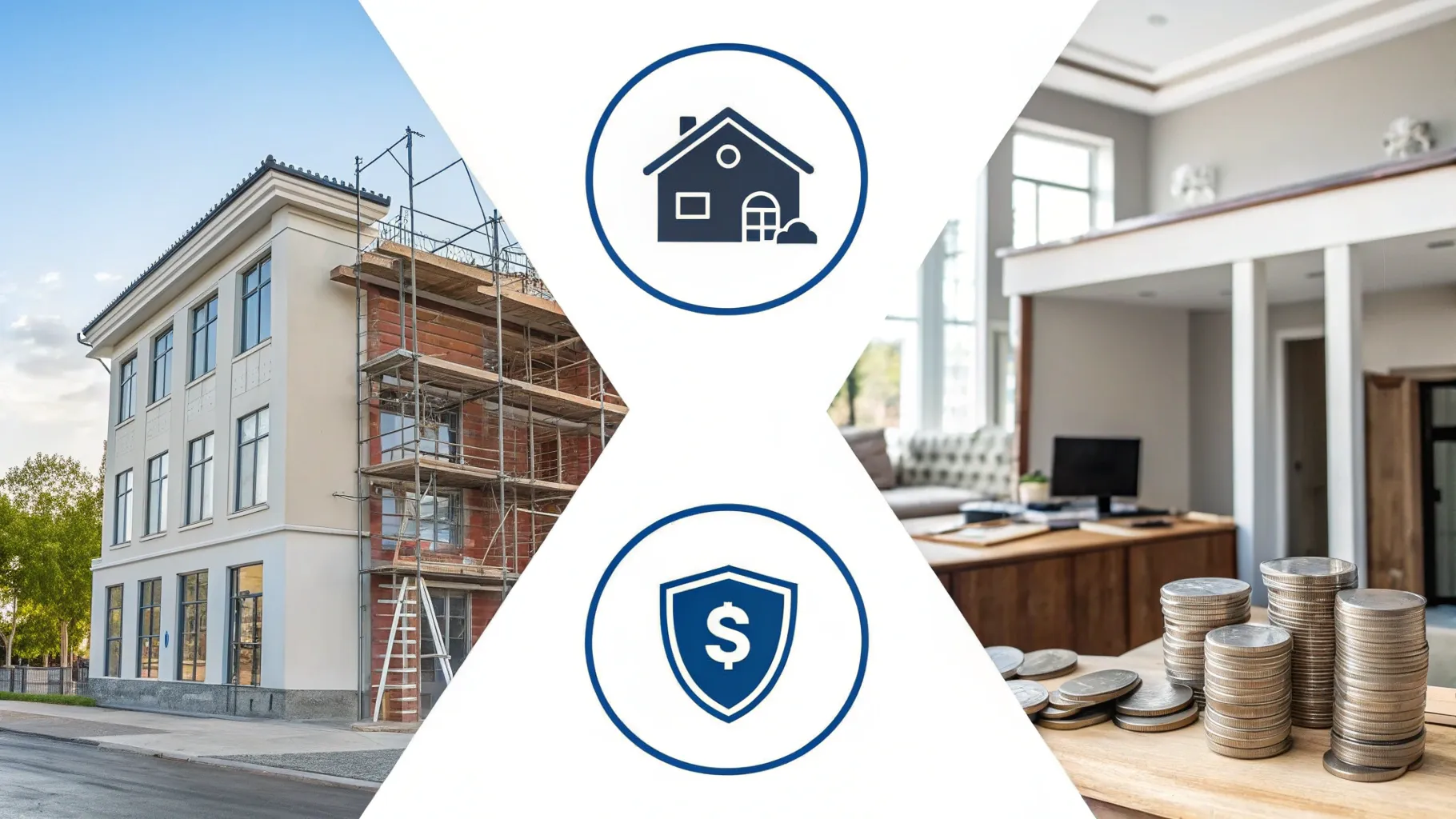Business Ownership Coach | Investor Financing Podcast guidance matters when you are transitioning from a short-term private construction loan to a long-term SBA solution. If you used private money to finish a restaurant or retail buildout, you now have choices. Refinancing into the right SBA product can lower monthly payments, extend amortization, and in some cases allow you to finance furnishings, fixtures, and equipment.
When a Private Money Construction Loan Becomes a Refinancing Opportunity

Private construction loans are a great way to get an opening fast, but they often carry short terms, higher rates, and balloons. That creates a refinancing trigger the moment the buildout is complete and operations begin. Two SBA programs are the usual options: SBA 504 and SBA 7a. Both can refinance existing debt under the right conditions, especially when the original loan is a private money loan or includes a balloon payment.
Here are the key eligibility points to watch for:
- Balloon payments or private lender structures typically qualify for SBA refinancing.
- Project completion and the business being operational strengthen refinance viability.
- Documentation of construction costs, FF&E invoices, and property improvements will be required.
Can You Include FF&E and Property Improvements?

Yes. Expenses for property improvements and furnishings, fixtures, and equipment (FF&E) are commonly financeable as part of an SBA refinance package. Both SBA 504 and SBA 7a programs can include these items, but the structure and limits differ.
- SBA 504 is focused on fixed assets such as real estate and major equipment. It typically provides long-term, fixed-rate financing for property and large equipment purchases.
- SBA 7a is more flexible. It can cover real estate, equipment, and working capital, and is often used when businesses need to roll in additional operating funds.
When you refinance, gather detailed invoices and classifications for each expense. Separating what is property improvement versus what is FF&E will help lenders package the loan properly and may affect which SBA product is most suitable.
Choosing Between SBA 504 and SBA 7a

Photo by Markus Winkler on Unsplash
Deciding between long-term debt with the SBA 504 and an SBA 7a depends on priorities. Consider these tradeoffs:
- Interest rate and term: SBA 504 loans typically offer long-term, fixed rates that are attractive for real estate. SBA 7a loans can have variable or fixed rates and often shorter amortizations compared with a 504.
- Working capital needs: If you need to pack working capital into the refinance, SBA 7a is usually the better fit. The 7a can cover working capital directly, whereas 504 is asset-focused.
- Combination financing: A common strategy is to use a 504 for the real estate portion and a companion 7a for FF&E and working capital. That hybrid approach can deliver the best of both worlds.
- Fees and process: 504 involves participation from a Certified Development Company and has specific fees and timelines. 7a underwriting can be faster for smaller companion amounts.
In short, if your main goal is long-term, low-rate real estate financing, the 504 often makes sense. If you need working capital or want to refinance a variety of costs together, 7a or a combination may be preferable.
Practical Steps to Prepare for SBA Refinancing

Preparation makes the refinance process smoother and increases the chance of approval. Follow these steps:
- Organize documentation — invoices for FF&E, receipts for property improvements, construction draws, and the private loan payoff statement.
- Confirm eligibility — verify whether the current private loan has a balloon or other features that qualify it for SBA refinancing.
- Estimate needs — determine how much, if any, working capital you need rolled into the refinance.
- Consider an expert — working with a commercial mortgage advisor who understands both SBA 504 and 7a products can save time and structure the right combo.
It is common to find that the private construction loan plus FF&E can be packaged into an SBA 504 refinance, or into a 7a or a 504 with a companion 7a. The right path depends on the mix of real estate versus equipment and the need for working capital.

Common Scenarios and Recommended Approaches
Here are three typical situations and sensible approaches:
- Primarily real estate improvements: Use SBA 504 as the anchor for long-term financing. Consider pairing with a small 7a if you need additional capital for FF&E.
- Significant FF&E and working capital needs: Lean toward SBA 7a or a blended 7a/504 structure so working capital can be included in the loan amount.
- Private lender balloon payment: Both 7a and 504 can refinance private loans that have balloon features. Documentation that the private loan funded construction and now requires refinancing will be key.

Making the Decision: Clear Questions to Ask
Before committing, answer these questions:
- How much of the total cost is real estate vs equipment?
- Do I need working capital included in the refinance?
- Is the goal to minimize monthly payments, secure a fixed rate, or both?
- Can I provide clear documentation for FF&E and improvements?
Once those answers are clear, structuring the refinance becomes a matter of matching products to needs. A 504 gives predictability for property owners. A 7a gives flexibility for operations. Using both can be powerful.
Final Thoughts and Next Steps
Refinancing a private money construction loan into SBA debt is feasible and often advantageous. Whether you pursue an SBA 504, an SBA 7a, or a combination, the most important actions are proper documentation and aligning the loan structure with your business goals. If reducing payments and stabilizing your capital structure are priorities, leaning into a 504 (with a companion 7a if needed) is a common and effective path.
Business Ownership Coach | Investor Financing Podcast advice: collect invoices, confirm the private loan’s payoff terms, and decide how much working capital to include. That will point you to the right SBA solution.
If you are ready to explore options, consult a commercial mortgage advisor who specializes in SBA structures to model both 504 and 7a scenarios and identify the package that maximizes savings and operational flexibility.
Business Ownership Coach | Investor Financing Podcast
